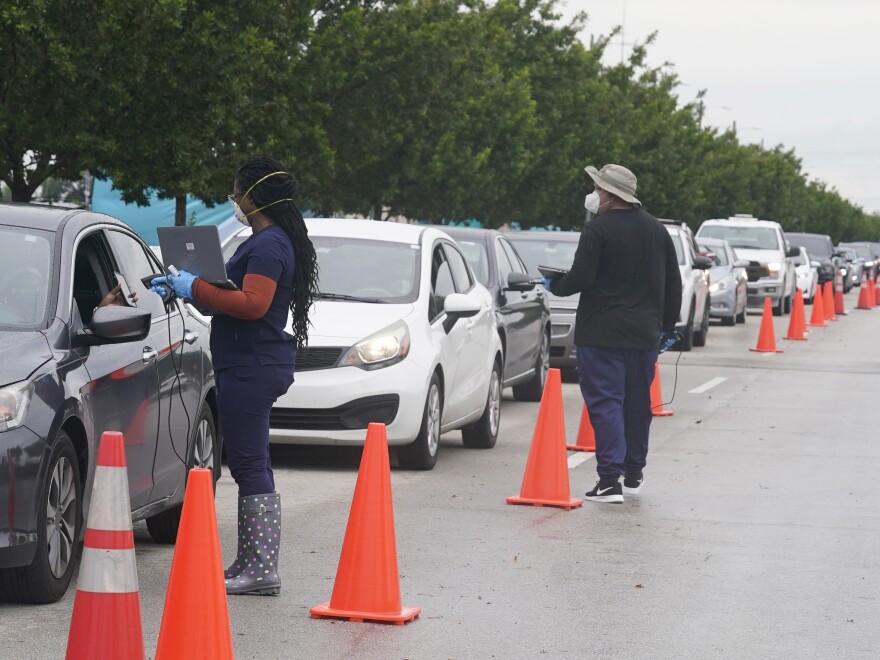A new analysis by the University of Washington shows the omicron surge will peak in a massive wave of infections by the end of January but is likely to produce far fewer severe illnesses for most people.
The analysis projects the omicron wave will infect more than 400,000 people a day in the U.S. when it crests in about six weeks. That's far more than the 250,000 people who caught the virus every day at the peak of last winter's surge.
But the researchers estimate that most of those who catch omicron won't get sick or will only get mildly ill. As a result, the rate of people getting hospitalized and dying from omicron will be much lower, the analysis concludes.
Other researchers question whether there's enough evidence to reliably estimate about how sick omicron makes people. But they agree that the sheer number of people catching the virus could still overwhelm hospitals.
"What could that even be based on?" wrote Natalie Dean, a biostatistician and epidemiologist at Emory University, in an email to NPR. "Evidence on reduced severity is suggestive but still very premature."
Justin Lessler, an epidemiologist at the University of North Carolina, Chapel Hill, said that with so much unknown now about omicron, he would take any projection "with a grain of salt."
"Some of the qualitative things they are saying seem somewhat reasonable, but it is hard to say for sure at this point," Lessler said in an email to NPR. "I certainly would say far too much is unknown about Omicron right now to make what I would consider a formal forecast or single projection."
"I think there is some chance they are right, but I can't think of what data those death numbers could possibly be based on at this point," Lessler wrote.
Globally, the analysis projected that the world will see 3 billion or more infections over the next three months, which is as many as the entire two years of the pandemic, said Dr. Chris Murray, director of the university's Institute for Health Metrics and Evaluation.
Researchers project there could be 35 million new cases a day around the world by mid-January, or triple the previous highest daily rate of infections.
President Biden on Tuesday announced his plan to combat the surge in the U.S., sending out a half-billion at-home test kits and support teams to hospitals that could be overwhelmed by new cases.
NPR's John Helton contributed to this report.
Copyright 2021 NPR. To see more, visit https://www.npr.org.



